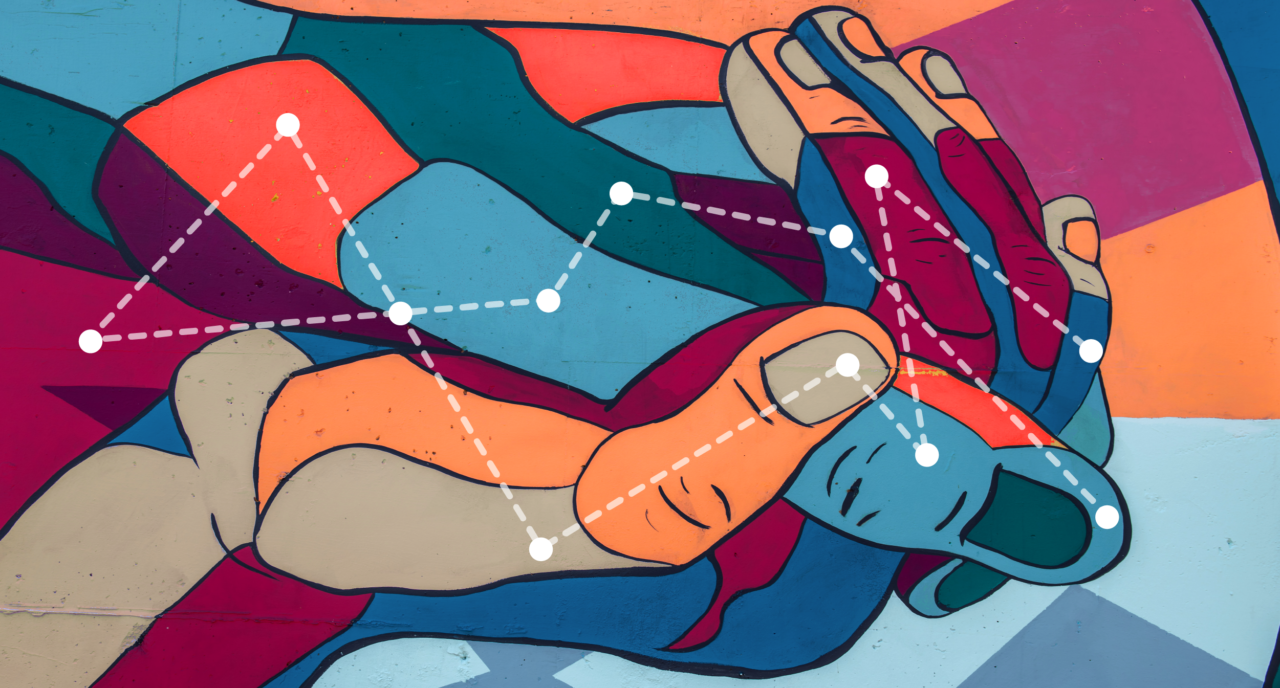-
April 23, 2021Decolonizing Design Research: Activist Scholar

Text by Michele Rafferty, PLASTARC
In December 2020, the AIANY Social Science and Architecture Committee (SSAC) presented the second virtual panel in its series, “Decolonizing Design Research.” The four sessions, organized by AIANY, PLASTARC, and Studio Fōr, examine the history of design research as a profession and push practitioners to investigate systemic and cultural causes of bias and inequity in design.
The virtual panel, “Activist Scholar,” focused on the role of researchers and academics in ensuring that conducting design research is equitable. One of the perks of the virtual forum was that the panel easily could—and did—include guests from communities all over the country. Panelists included Shawhin Roudbari, Assistant Professor of Environmental Design at the University of Colorado Boulder; Dr. Deshonay Dozier, Assistant Professor of Human Geography at Cal State Long Beach; and Joseph Kunkel, Design Director at the Sustainable Native Communities Design Lab at MASS Santa Fe, NM.
Moderator Gabriel (Gabo) Halili, a Designer, and Urban Planner, and a committee member of AIANY, began the session by talking about the meaning of ‘decolonizing.’; stressed that colonizing cannot be separate from the exploitation of people. Colonization embedded within the history of the US and the rest of the world, and New York City, where the event occurred, is built on Lenape land. Panelists affirmed the influence of architects on our cities—intentional or otherwise—and Halili explained that the way we make decisions on land use plants seeds ensuring we don’t perpetuate colonization.
Roudbari, a professor and the founder of the Spatial Justice Design Collective, felt passionate that architects must involve themselves in contentious political issues. He cited his projects combining archival research, sociological texts, and visualization through frames to examine how society views white supremacy in colorblind ways. His company has been working on creative collage projects that highlight the role architects play in social problems.
These projects have been stepping stones for more research on political engagement specific to the architectural profession. Roudbari contrasted two examples from the 2018 AIA convention—a women’s flash mob outside that addressed equity and discrimination within the architecture profession and a protest based on class inequality. The former greeted favorably, while some participants of the latter were denied from attending the keynote address.
Another project Roudbari worked on was the National Organization of Minority Architects (NOMA) project pipeline. NOMA was founded during the civil rights era to address racial inequality. It was instrumental in transferring the energy of the civil rights movement from the streets into the architectural profession. Roudbari talked about Jane McAlevey, a prominent advocate for organizing to attain social change, and John Wilson, who believes that working with existing systems is instrumental in transformation. Roudbari’s introduction segued into a discussion of Dozier’s work.
Dozier started her ethnographic fieldwork focusing on homelessness in skid row Los Angeles. Her work protected unhoused people’s property from threats like removal by the police, who funded $87 million to ‘take care of the problem. One of Dozier’s long-time goals has been to advocate for defunding the police. She believes that LA needs to house the homeless, and she hopes that these issues will resonate with urban planners, designers, and architects. Dozier is not convinced that these professions have the same vision that her organization does but is willing to continue her activism through conversations and education.
Kunkel’s approach harmonizes with Dozier’s vision. He is adamant that housing is a way to reflect identity and culture. Kunkel’s company collaborates with the community to promote justice and human dignity. However, he lives in Santa Fe, his work influenced by his own identity as a citizen of the Northern Cheyenne Nation. Kunkel tries to approach the topic by asking questions like: What does housing mean to you? What does home mean to you? How do we connect to this place? How is our identity attached to a site?
Kunkel’s work on the Wa-Di Housing Project, which included 41 housing units, explored how reflecting on the community’s values could boost healing and connection to place. Kunkel tried to accomplish this through conversations with the community and understand how people gather and work.
The presentations concluded with attendees splitting up into breakout rooms to discuss how their thinking shifted due to the presentations and to explore the power architects have to decolonize design. The conversation generated many intriguing conversations, many encouraging a bottom-up approach to design. Others encouraged their colleagues to look beyond euro-centric patterns not just in what they design but in how they organize their design practice. One attendee pointed to the example of Minangkabau architecture, which reflects a more matriarchal culture.
The Center for Architecture and the SSAC, situated at the intersection of architecture, social sciences, and design, frequently offer programs intended to help architects make positive social impacts through their work. As our society looks for solutions to entrenched social problems around race and inequality, design plays an important role. Please follow our discussion on this topic and others through the Social Science and Architecture Committee, and here.
Social Science and Architecture
The Social Science and Architecture Committee was formed in January 2016 with the goal of bringing together professionals and students from architecture, social science, and other fields to discuss, collaborate, and facilitate programs for the community. The meeting offers a place to exchange ideas related to social science and architecture, address topics of interest to the attendees, and to plan AIA panels on related topics. The Committee meets monthly and is open to anyone who would like to attend. Meetings are held the fourth Friday of every month from 8:30-10:00 AM.







